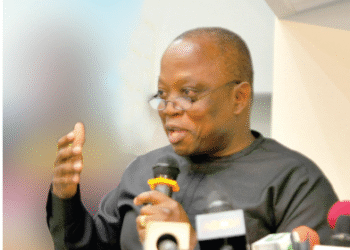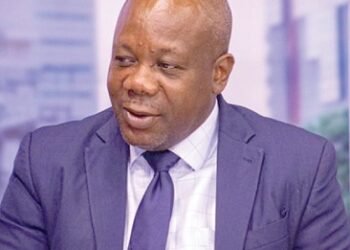The National Petroleum Authority (NPA) has issued a press statement addressing a recent media publication that allegedly misrepresented comments made by the Authority’s Head of Communications, Mr. Mohammed Abdul-Kudus.
The publication according to the press statement claimed that Mr. Abdul-Kudus suggested that the implementation of the Cylinder Recirculation Model (CRM) would eliminate cheating at LPG filling stations. However, the NPA clarified that this interpretation is misleading and does not accurately reflect the content of the interview in question.
In the press statement, the NPA elaborated on the specific points Mr. Abdul-Kudus made during the interview.
“He explained that under the CRM, the process of filling LPG cylinders is fully automated at bottling plants, which enhances accuracy and consistency.
“Customers are, therefore, assured of receiving the precise amount of LPG they pay for when they exchange their empty cylinders for filled ones at designated points.”
National Petroleum Authority (NPA)
To further address potential doubts, the NPA noted that Mr. Abdul-Kudus indicated customers who remain skeptical about the quantity of gas in their cylinders will have the opportunity to verify the weight using scales available at exchange points.
This measure according to NPA is intended to build trust and transparency in the system, ensuring that consumers feel confident in the accuracy of their transactions.
The misunderstanding arose from an interview Mr. Abdul-Kudus granted to an Accra-based radio station, during which he discussed the Cylinder Recirculation Model (CRM) and addressed customer concerns regarding the integrity of filled LPG cylinders under the new system.
According to the NPA, while Mr. Abdul-Kudus emphasized that the CRM offers improved measures to ensure customers receive the correct quantity of LPG, at no point did he explicitly state that the CRM would eliminate cheating at filling stations.
Upon discovering the inaccurate headline, the NPA promptly contacted the media house responsible, requesting a correction to accurately reflect Mr. Abdul-Kudus’ comments.
The Authority emphasized its commitment to fairness and transparency in its regulatory duties, underlining that it has no intention of making statements that could antagonize or damage the reputation of any stakeholders within the petroleum downstream industry.
The NPA also reiterated its responsibility to protect the interests of consumers, addressing their concerns while maintaining a balanced approach to regulation.
In light of this, the Authority urged media outlets to exercise caution in their reporting, ensuring that information is accurately conveyed to avoid misunderstandings or the spread of misinformation.
Correct Headline by Media House
The NPA further highlighted that the media house responsible for the interview originally published the story with a headline that accurately reflected the essence of Mr. Abdul-Kudus’ remarks.
“NPA allays fears of gas cheating under cylinder recirculation model.’ This headline was an appropriate representation of the discussion that took place.”
National Petroleum Authority (NPA)
However, the Authority noted with concern that a subsequent publication by another outlet used a misleading headline, suggesting that the CRM would eliminate cheating at filling stations. This misrepresentation has the potential to cause confusion among the public and stakeholders in the petroleum industry.
The CRM is an initiative by the NPA aimed at improving safety, efficiency, and convenience in the distribution and usage of liquefied petroleum gas (LPG) in Ghana. Under this model, consumers exchange empty cylinders for pre-filled ones at certified exchange points rather than refilling their cylinders at traditional filling stations.
The model is designed to standardize the filling process, reduce the risk of accidents, and ensure that consumers receive the correct quantity of LPG.
The NPA has been actively engaging with stakeholders and the public to raise awareness about the CRM and address any concerns related to its implementation.
The Authority indicated its commitment to its regulatory role, ensuring that all players in the petroleum industry adhere to standards that protect consumers while fostering a fair and competitive market.
The clarification provided by the NPA regarding the CRM and its benefits aims to reassure the public and stakeholders that the system is designed with their best interests in mind, and any concerns will be addressed with transparency and accountability.
READ ALSO: Wizkid Shares How He Discarded Football for Music























